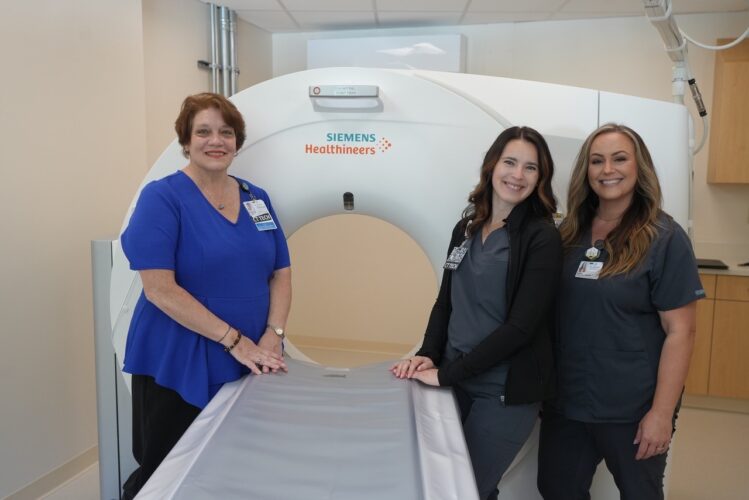In tour of BAE, Hassan touts bill aimed at expanding tech
NASHUA – Keeping the manufacture of critical tech components such as military and medical devices and solar panels within the U.S., and at the same time reduce our dependence on other countries – mainly China – for keeping our manufacturing centers buzzing and the stockrooms full, is the aim of legislation currently headed toward a joint House and Senate conference committee for study.
U.S. Sen. Maggie Hassan, Democrat of New Hampshire, brought that message to Nashua Monday morning, where she met with representatives of BAE Systems’ Microelectronics Center and toured the facility, getting a first-hand look at the manufacturing process of semiconductor electronics that BAE supplies to the U.S. Department of Defense.
Hassan, who described BAE as a valued “corporate citizen” and “such an important partner in our nation’s defense systems,” said she visited the Microelectronics Center, which sits a couple of parking lots away from the 7-story main building off Spit Brook Road, to “learn about the work that BAE is doing to produce some of the most critical component parts here in New Hampshire, and the United States, at a time when we’re facing a supply-chain challenge.”
The focus of the legislation that Hassan, along with a bi-partisan group of legislators from both the House and Senate, is working on would offer incentives, such as grants or loans, to U.S. firms to help them retain their trained employees and train new ones.
While larger New Hampshire companies like BAE typically train their manufacturing force in-house, Hassan said one approach to the training process for medium sized and smaller firms could be partnerships between the firms and the state’s Community Colleges.
For going on two years now, Hassan said she and her colleagues have been meeting with tech-manufacturing leaders in their respective districts to learn “what these companies on the cutting edge need, and what will it take to bring manufacturing back here,” she said.
Not being dependent on China and other nations is among the most important reasons to return, and retain, tech-manufacturing jobs in the U.S., Hassan said.
“It’s about being independent. We want to outcompete countries like China, and we also don’t want to be depending on them for our critical component parts,” Hassan said.
That, she added, is not only essential to successful economic development, “but also our national defense.”
As for the bill itself, it has gone by various names and versions, and is currently referred to as the competition and innovation bill. But the intent, Hassan said, has remained the same: To invest more resources in American manufacturing and research and development, and to help strengthen supply chains and outcompete countries like China.
The bill also includes funding for the CHIPS (Creating Helpful Incentives to Produce Semiconductors) Act, which will provide over $52 billion for domestic semiconductor manufacturing, research and development, and supply chain security.
The U.S. House passed its version of the bill in February, and it was just last week that the Senate followed suit.
The next step is for the formation of a conference committee, members of which will be tasked with negotiating the final text of the legislation. Both chambers will then need to approve the final text before it can move on to the president to be signed into law.
Dean Shalhoup may be reached at 594-1256 or dshalhoup@nashuatelegraph.com.






